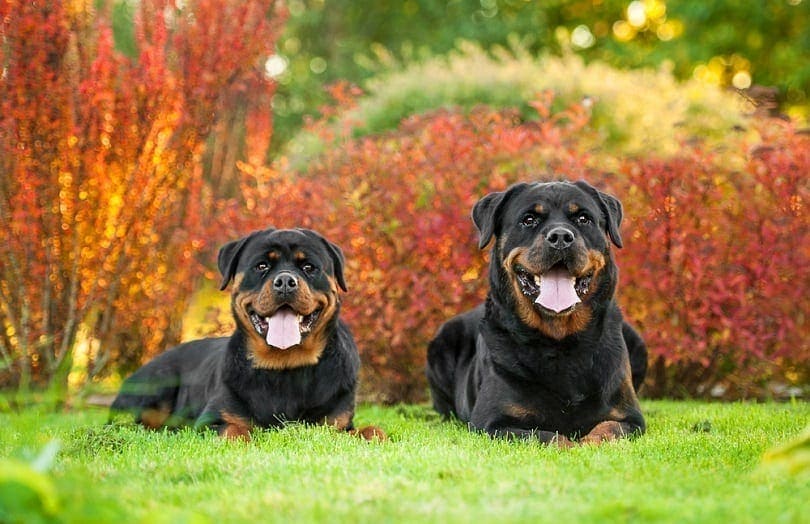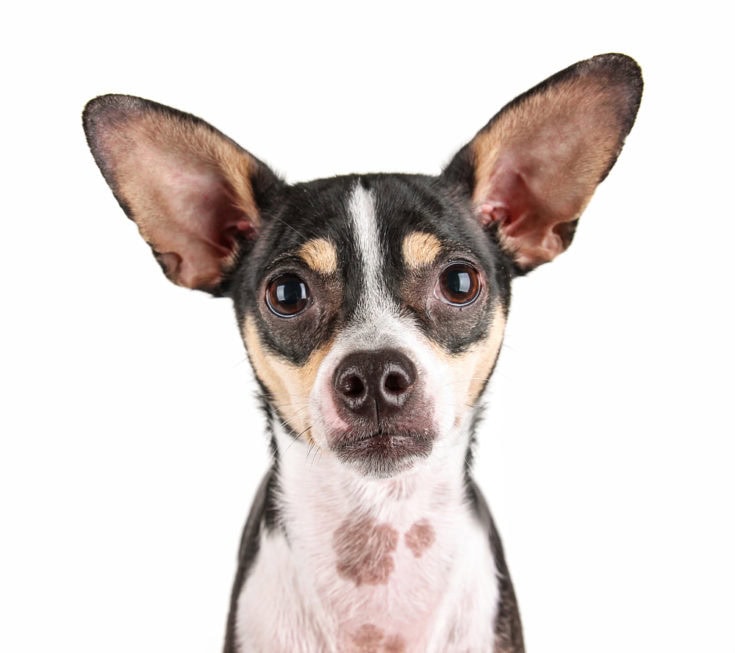Why Does My Dog Pee When I Pet Him? 5 Possible Reasons

Updated on
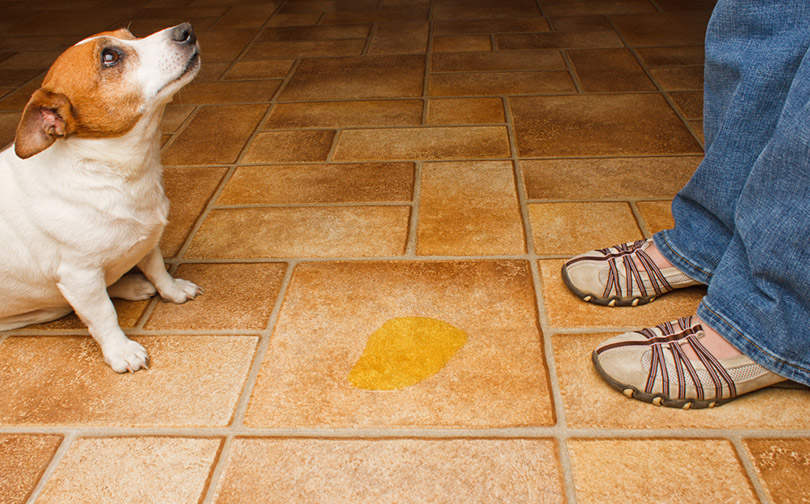
Most pet parents could not tolerate life without the companionship of their dogs, but frequently cleaning pools of urine can test their patience. Urinating indoors is a common issue with untrained puppies, older dogs, and timid rescue animals, but what does it mean when your pet urinates after petting it? Unlike humans, dogs use peeing to communicate with other animals, and your dog may be exhibiting excitement or submissive urination.
Excitement and submissive urination can be corrected, but before using training methods to fix the issue, you can take your pet to the veterinarian to rule out any serious medical problems. Most urinary issues can be treated with medication, but severe problems may require surgery.
The 5 Reasons Dogs Pee When You Pet Them:
If the vet has cleared your dog of medical issues, you can work on investigating the reasons for the behavior. Determining what triggers urination is vital to solving the problem. Does your dog pee only when you greet it for the first time, or does it occur whenever you interact with the animal? When you play with or pet your dog, using a calmer approach can alleviate its excitement.
1. Excitement Urination
Greeting your dog or puppy is one of the highlights of your day, especially after dealing with chaos at work. If your dog urinates after you pet it, the cause may be excitement urination. Puppies are more prone to the behavior because they have not learned to control their bladders, and luckily, excitement urination usually ceases when the pups grow into adults. However, adult dogs can also pee when excited, and they require daily training to correct the issue.
Although it may seem cruel, you can ignore your pup for a few minutes when you first enter your home. Avoid immediate contact with the dog or loud greetings, and ask your family to practice the same technique. Let your dog come to you, and then bend down and calmly pet your dog under the chin rather than on its head.
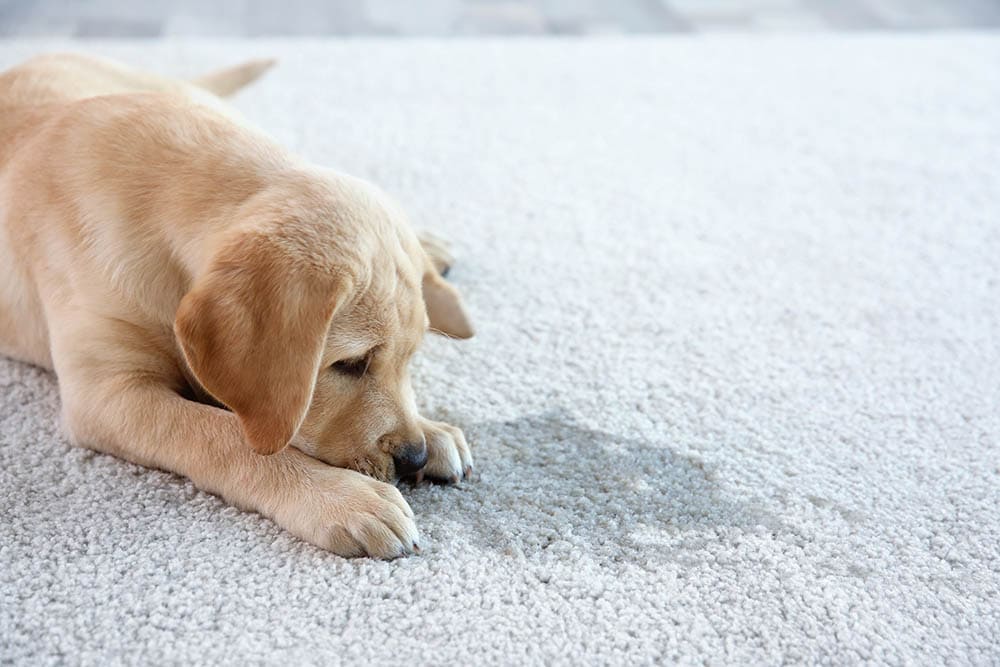
2. Submissive Urination
When a timid dog urinates after human contact, it may be displaying a submissive action. Submissive urination can be accompanied by visual signs such as flattening the ears, tucking in the tail, or raising the front paws. Loud noises or boisterous visitors may also cause the canine to display submissive behavior. Submissive dogs are signaling that they’re fearful or stressed by other dominant animals in their environment. Fixing the issue involves confidence training.
Giving your pet a spirited greeting may be misinterpreted as a show of dominance. When the animal urinates, it’s only showing you that it’s not a threat. Remaining calm when you enter the house and trying to distract the dog with a treat or toy may alleviate its apprehension. If you see your pet tuck in its tail or flatten its ears, try encouraging it to go outside before it urinates.
Having a pet means cleaning up smells, stains, hair, vomit, and more...and you can add to your pet clean-up routine with the Hepper Advanced Bio-Enzyme Pet Stain & Odor Eliminator Spray.
- ADVANCED ENZYMATIC CLEANER - Penetrates the most stubborn smells and stains at the deepest molecular...
- FOR ANY MESS, ON ANY SURFACE - This pet odor eliminator cleans your carpets, floors, furniture,...
It's our product, and we love it so much, we just have to share! It permanently removes the very worst smells and stains, and we offer a 100% satisfaction guarantee!
3. Urinary Tract Infection
Although submissive and excitement urination can be corrected with training, a urinary infection can involuntarily cause the dog to pee. When bacteria settle in the bladder after entering the urethra, the infection can cause excessive urination, blood in the urine, genital licking, and strong-smelling urine. If you notice any of these signs, in addition to excitement peeing, take your pet to the doctor immediately.
Early treatment of a urinary tract infection (UTI) can prevent additional problems or diseases, and it’s essential to follow the vet’s treatment plan. After examining the dog’s urinalysis, the vet will prescribe medications such as antibiotics or order more tests like X-rays to rule out any serious issues. If your pet is prone to UTIs, the vet may recommend diet changes or supplements to change the urine’s pH.
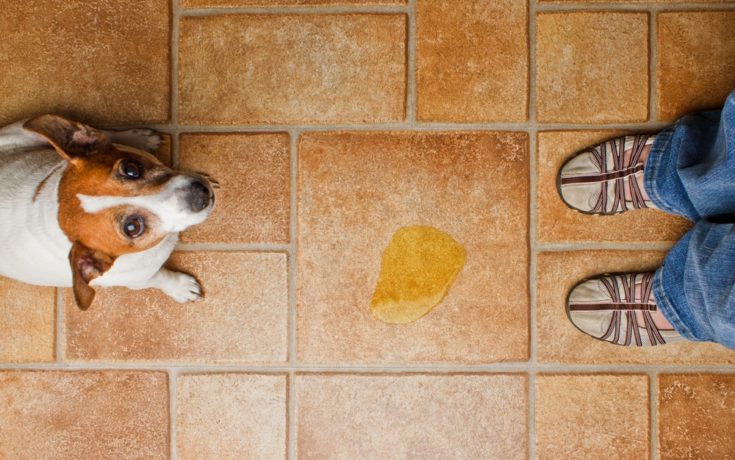
4. Urinary Incontinence
Although you may only notice your dog urinating when it’s excited, the cause could be related to a medical issue other than a UTI or behavioral problem. Any animal can have incontinence, but some dogs are more susceptible to the condition. Older pups and recently spayed females are more vulnerable to incontinence than healthy adults. Possible causes of incontinence include congenital deficiencies, abnormal bladder positioning, and declining estrogen levels.
If your pet was born with an abnormality that prevents normal urination, the vet might resort to surgery to treat the problem. Medications can help in some cases, but depending on the severity of the problem, some dogs and their owners may have to learn how to live with urinary incontinence.
5. Incomplete Training
It’s common for puppies to have accidents before they understand potty training, but a newly adopted adult may not have had the proper training as a puppy. Training a full-grown dog to urinate outside is similar to training a puppy, but an adult may take longer to adopt the new behavior. Using positive reinforcement to encourage the correct bathroom habits is the ideal technique to prevent indoor accidents from an excited canine.
Yelling or rubbing the animal’s face in urine are not ethical methods. Harsh treatment will only make the animal scared, and it’s unlikely to solve problems with indoor urination. To reduce your dog’s excitement or stress, use treats to reward your pet when it goes outside and remain calm when you first come home. Frequent outdoor breaks and a routine feeding schedule can encourage the animal to pee at specific times.
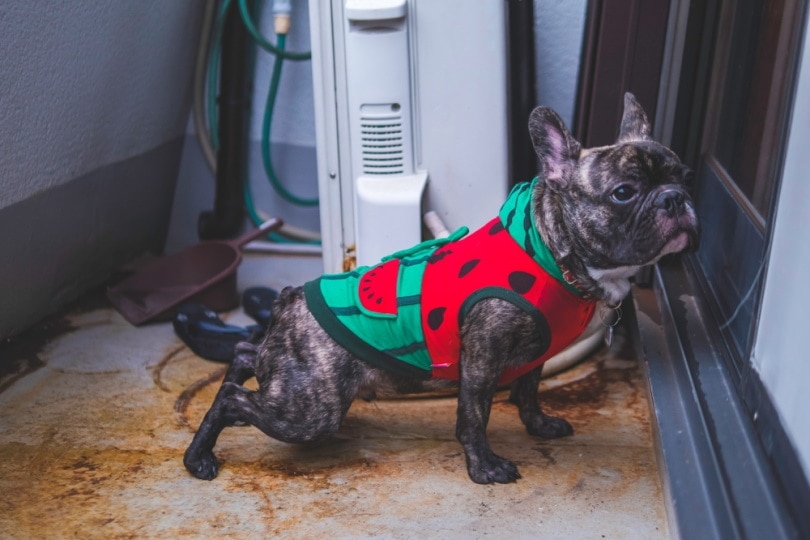
Additional Tips for Handling Excited Dogs
Training a healthy dog with excitement or submissive urination problems is more successful when your family and friends help. It’s difficult for young children to contain their excitement when they see a dog, but instructing your kids to stay calm and avoid eye contact can reduce stress and fear. Your friends can also help by avoiding loud greetings when they enter and allowing the dog to come to them. When your pet refrains from peeing during visits from strangers or other exciting times, provide a tasty treat as a reward.
Conclusion
Cleaning urine stains from an excited dog is never fun, but some urinary issues can be resolved with training. Whether you suspect the behavior is related to excitement, submissive matters, or a medical problem, a trip to the veterinarian is your first step. Urinary issues can develop into severe medical problems like kidney disease, and it’s critical to determine the cause early to prevent an acceleration of symptoms.
Related Reads:
- Why Does My Dog Pee On His Blanket? 9 Possible Reasons
- Why Does My Dog Pee Next to the Pad? 9 Possible Reasons & Solutions
Featured Image Credit: MCarper, Shutterstock





